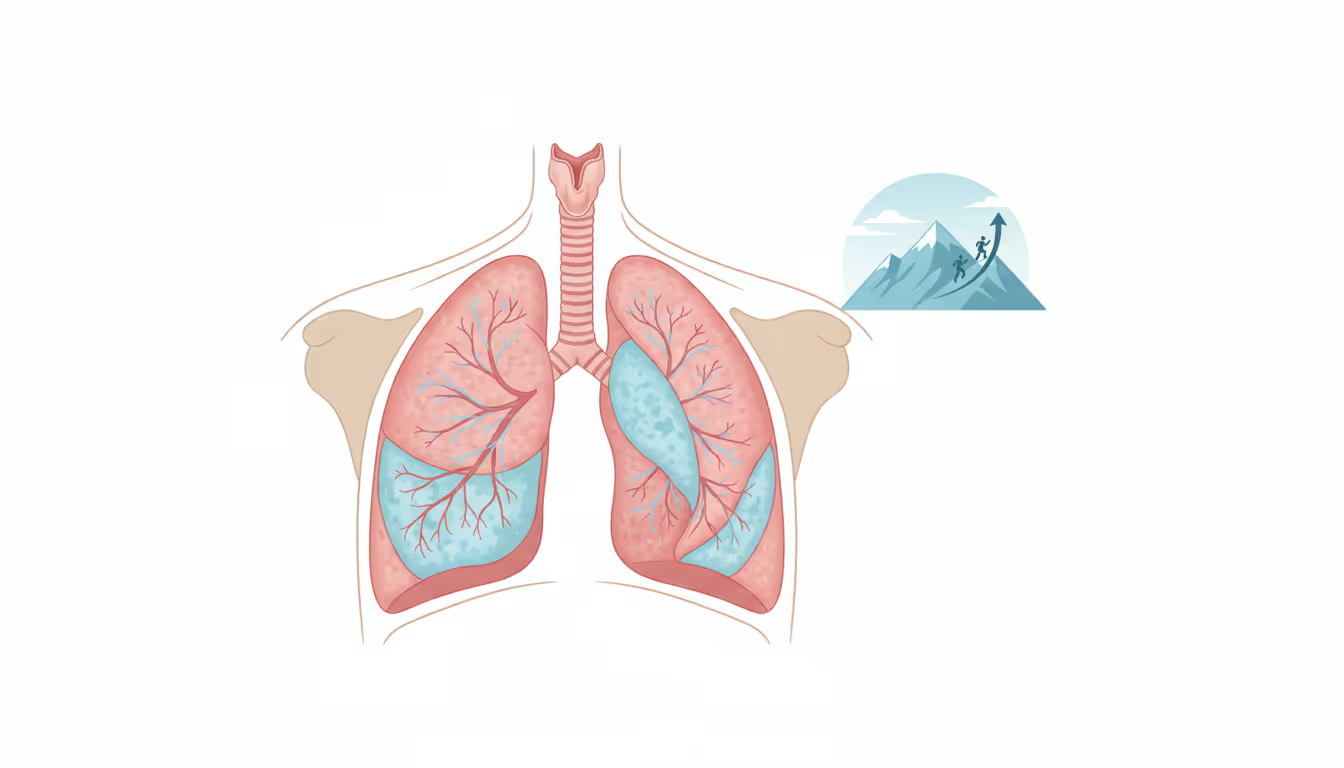
HAPE, short for High-Altitude Pulmonary Edema, refers to the buildup of fluid outside the blood vessels in the lungs at high altitudes. This condition often results from a rapid ascent, particularly when combined with strenuous physical activity. Symptoms include breathing difficulties, coughing, a rapid heart rate, and reduced oxygen levels in the blood. The severity of HAPE can range from mild to life-threatening. Genetic predispositions may make some individuals more prone to HAPE. Those affected often have smaller lung capacities and higher pressures in the pulmonary artery and wedge during sea-level exercise compared to those who don’t develop HAPE. A study observing climbers on a 4,500-meter mountain found that 15% showed clear signs of HAPE through chest examinations, either visually or through imaging, after their climb. The risk of HAPE increases with rapid ascents and intense physical exertion. Proper planning and pacing when climbing are crucial, as well-organized ascents to even higher altitudes tend to result in fewer instances of HAPE, despite the increased hypoxia. (Jan. 24, 2002).




